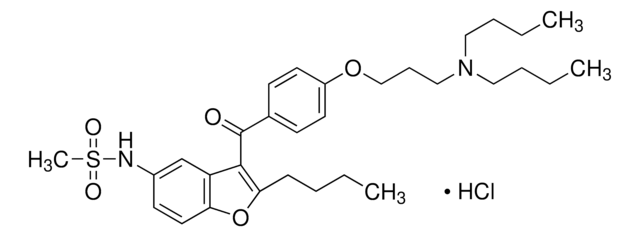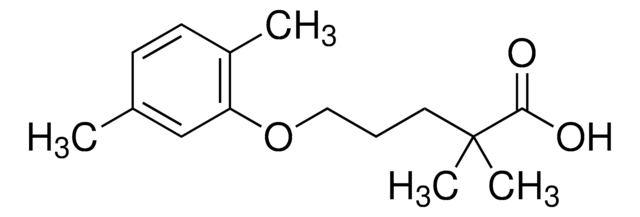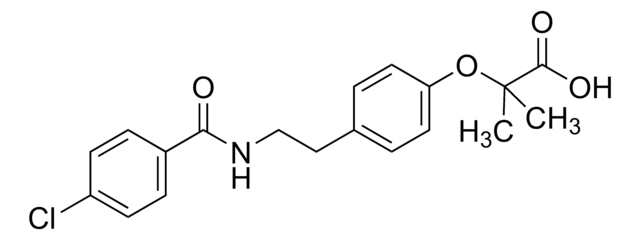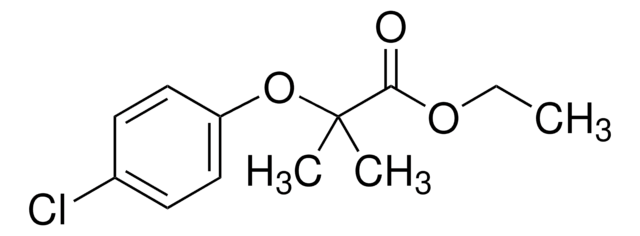F6020
Fenofibrate
≥99% (TLC), powder, lipid regulating drug
Synonyme(s) :
2-[4-(4-Chlorobenzoyl)phenoxy]-2-methylpropanoic acid isopropyl ester
About This Item
Produits recommandés
product name
Fenofibrate, ≥99%, powder
Niveau de qualité
Pureté
≥99%
Forme
powder
Couleur
off-white
Auteur
Abbott
Température de stockage
room temp
Chaîne SMILES
CC(C)OC(=O)C(C)(C)Oc1ccc(cc1)C(=O)c2ccc(Cl)cc2
InChI
1S/C20H21ClO4/c1-13(2)24-19(23)20(3,4)25-17-11-7-15(8-12-17)18(22)14-5-9-16(21)10-6-14/h5-13H,1-4H3
Clé InChI
YMTINGFKWWXKFG-UHFFFAOYSA-N
Informations sur le gène
human ... PPARA(5465)
Vous recherchez des produits similaires ? Visite Guide de comparaison des produits
Application
- to study its effect on plasma lipids, liver phenotype and gene expression
- to study its impact on endothelium-dependent vasodilatation of thoracic aorta
- to administer to NASH knock-in mice along with a high fat diet (HFD) to study its effect
Actions biochimiques/physiologiques
Caractéristiques et avantages
Mention d'avertissement
Warning
Mentions de danger
Conseils de prudence
Classification des risques
STOT RE 2 Oral
Organes cibles
Liver
Code de la classe de stockage
11 - Combustible Solids
Classe de danger pour l'eau (WGK)
WGK 1
Point d'éclair (°F)
Not applicable
Point d'éclair (°C)
Not applicable
Équipement de protection individuelle
dust mask type N95 (US), Eyeshields, Gloves
Certificats d'analyse (COA)
Recherchez un Certificats d'analyse (COA) en saisissant le numéro de lot du produit. Les numéros de lot figurent sur l'étiquette du produit après les mots "Lot" ou "Batch".
Déjà en possession de ce produit ?
Retrouvez la documentation relative aux produits que vous avez récemment achetés dans la Bibliothèque de documents.
Les clients ont également consulté
Articles
Lipoproteins package cholesterol for transport in plasma, essential for lipid transport and cellular function in the body.
Lipoproteins package cholesterol for transport in plasma, essential for lipid transport and cellular function in the body.
Lipoproteins package cholesterol for transport in plasma, essential for lipid transport and cellular function in the body.
Lipoproteins package cholesterol for transport in plasma, essential for lipid transport and cellular function in the body.
Notre équipe de scientifiques dispose d'une expérience dans tous les secteurs de la recherche, notamment en sciences de la vie, science des matériaux, synthèse chimique, chromatographie, analyse et dans de nombreux autres domaines..
Contacter notre Service technique











